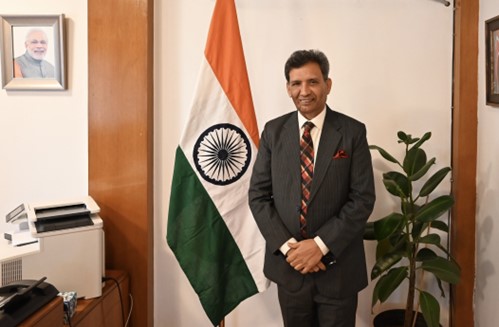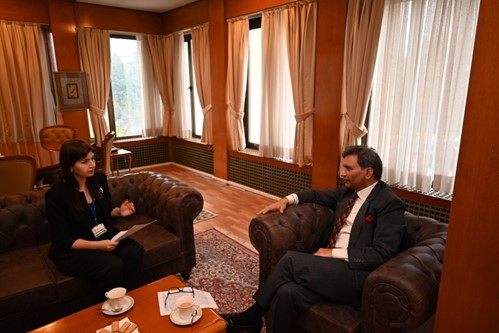Menu
- Home
- The Embassy
- Consular Services
- Guide to the traveler to India

- Passport Services
- Precautions while filling the Passport Form
- Renewal/ Reissue of Passport
- Photograph specification for passport renewal
- Lost/ Damaged Passport
- Expired Passport
- Change in name due to Marriage/ Divorce
- Change in name due to addition/ deletion of spouse name
- Change in name due to other reasons
- Change in address
- Change in appearance
- Correction of date/ place of birth
- Registration of Birth/ Issue of Birth Certificate/ Passport for a child born in Turkey
- Emergency Certificate
- Consular Services
- Attestation
- General Instructions
- Attestation of Birth Certificate
- Attestation of Death Certificate
- Attestation of Marriage Certificate
- Attestation of Bachelorhood Certificate
- Attestation of Power of Attorney
- Attestation of Salary and Experience Certificate
- Attestation of Medical Certificate
- Attestation of Other Documents
- Attestation for Foreign Nationals
- Police Clearance Certificate
- Emergency Certificate
- Renewal of International Driving Permit
- Attestation
- Death of an Indian National
- Application for PIO Card
- Application for OCI card
- Renunciation of Indian Citizenship
- VISA INFORMATION FOR INDIAN PP HOLDER VISITING TURKEY
- Important Advisory
- Information and Grievance Redressal Mechanism for Passport Services in India
- Emergency Phone Numbers
- Frequently Asked Questions(FAQs) on Marital disputes involving NRI/PIO spouses

- Registration of Indian Nationals
- Guide to the traveler to India
- Visa Services
- Visa guidelines and Processing Time
- Visa Requirement
- Tourist Visa
- Business Visa
- Medical Visa
- Medical Attendant Visa
- Employment Visa
- Student Visa
- Research Visa
- Intern Visa
- Entry Visa
- Conference Visa
- Transit Visa
- Journalist Visa
- Film Visa
- Mountaineering Visa
- Missionary Visa
- Pakistani Nationals
- Afghanistan Nationals
- Bangladesh Nationals
- E-Tourist Visa
- Visa for other nationalities
- Ayush Visa (AY)
- Bilateral Relations
- Events
- Media
- Embassy Activities in TR Media
- Useful Links
- Contact



















